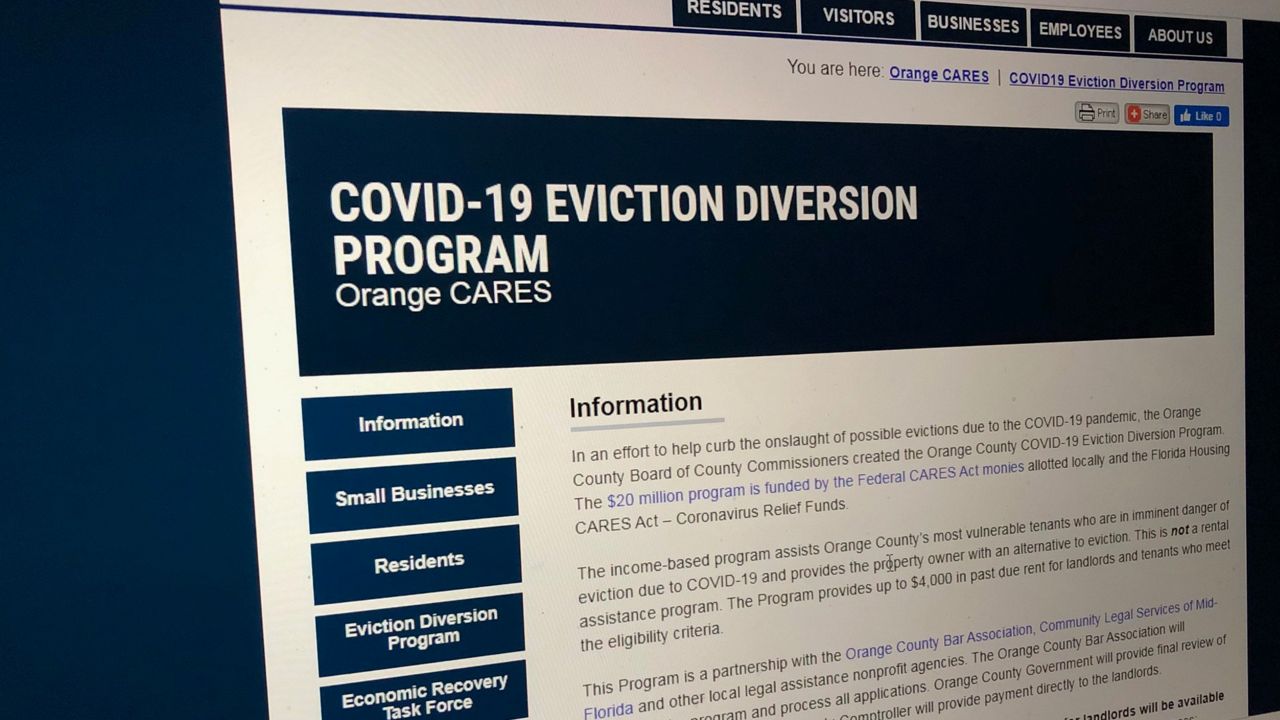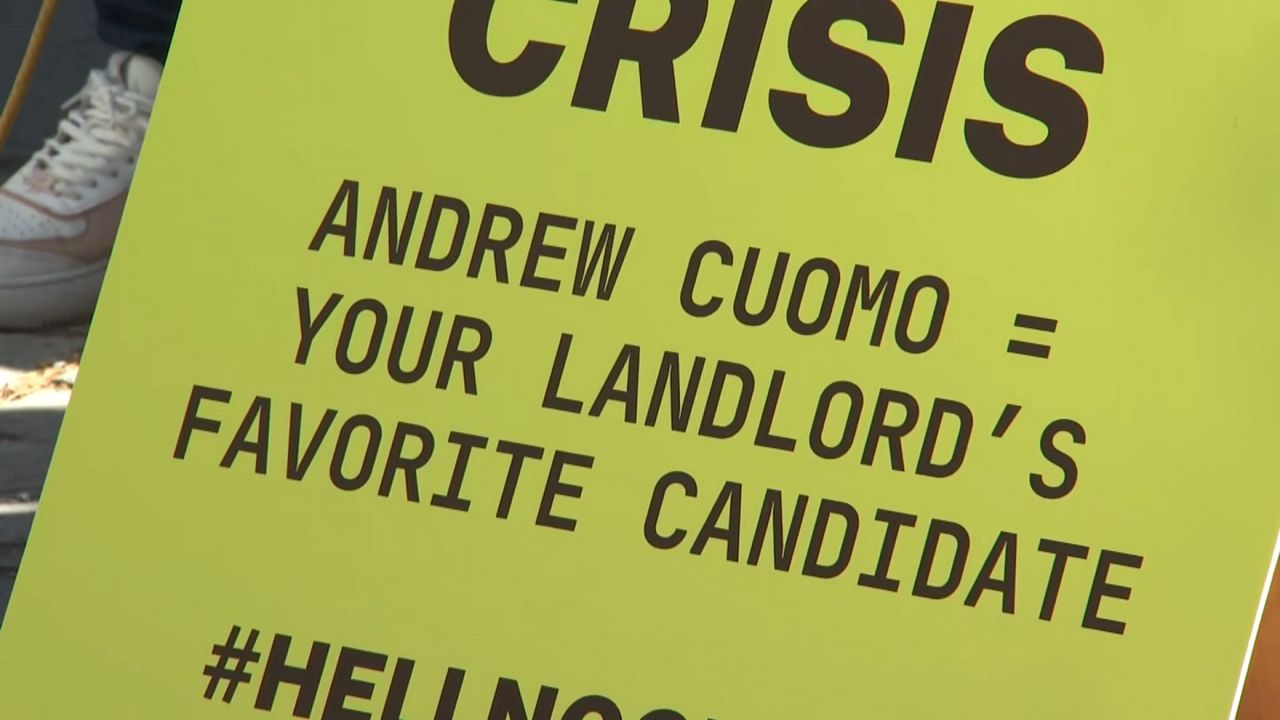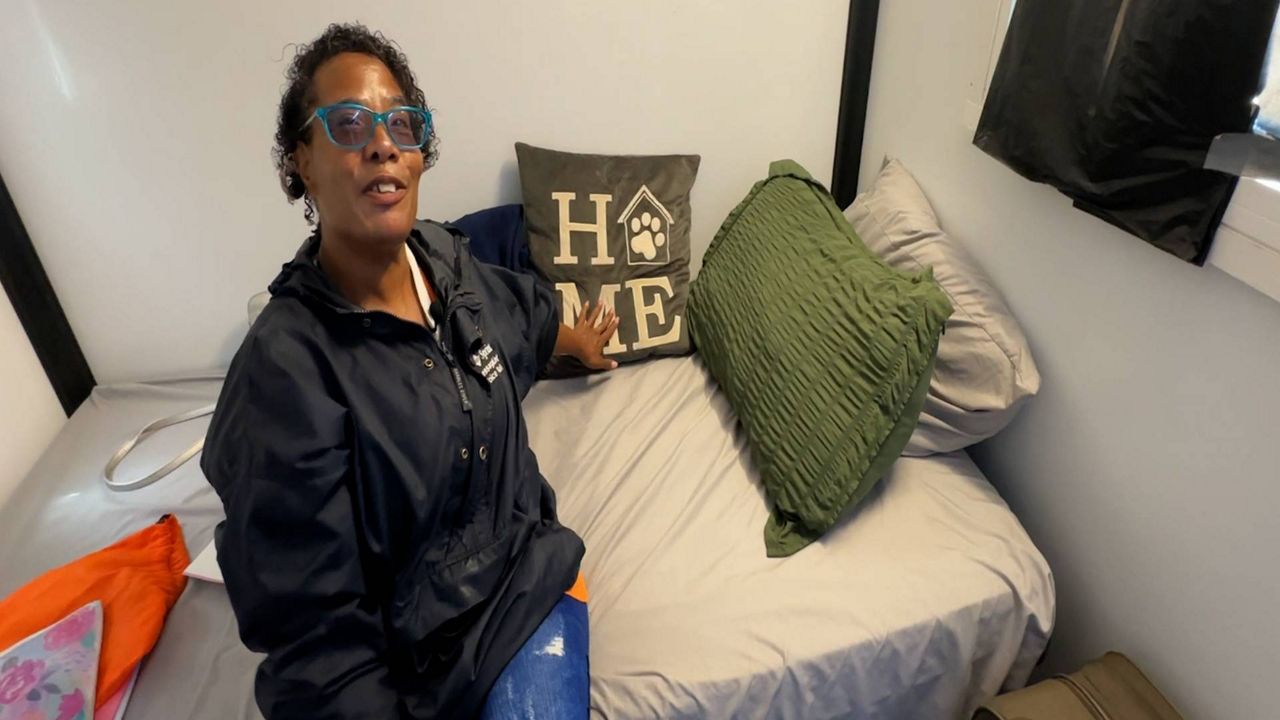ORANGE COUNTY, Fla. — More Orange County residents are now eligible to apply for the county’s eviction diversion program, which was created to help people imminently facing an eviction as a result of the COVID-19 pandemic.
County residents are now eligible to apply for the program if they earn up to 120% of the area median income, which is $68,100 for a family of four.
What You Need To Know
- Residents earning up to 120% of area median income are eligible
- The program resulted from economic woes caused by COVID-19
- The money is provided directly to the landlord
- Help is available from Community Legal Services of Mid-Florida
Originally, eligible applicants could earn no more than 105% of area median income (AMI). The hope is for more people to apply to the program so the county can distribute the fund’s remaining $10 million before the end-of-year deadline, according to Yetzenia Negron, senior planning development associate with Orange County’s Housing and Community Development Division. If the county does not spend down the remaining CARES Act funds, the money goes back to the federal government, Negron said.
“The good thing about this program is that the money is given directly to the landlord,” Negron said during a Lake Dot Village Neighborhood Association meeting Thursday night. “With this eviction diversion program, mediation takes place. The attorneys are brought in as well.”
Attorneys from Community Legal Services of Mid-Florida help tenants and landlords navigate the eviction diversion program. If a struggling tenant turns out to not be eligible for the program, the attorneys are still able to step in and see if there are other ways to assist.
Many landlords are collaborating with their tenants to make use of the program, which can pay landlords up to $4,000 on behalf of tenants who are at least two months behind on their rent. The program requires both landlord and tenant to cooperate.
The county had made 1,854 landlord-tenant matches by Friday at noon, according to county spokesperson Despina McLaughlin. But Orlando District 5 Commissioner Regina Hill, who also attended Thursday night’s meeting, pointed out that relatively speaking, that’s not a huge number.
“We’re talking about all of Orange County; that's not a whole lot of landlords,” Hill said. “That means we’ve got thousands that aren’t participating.”
Hill said she fears larger property managers in particular would rather get rid of tenants who owe back rent, so they can then increase the rent and bring in new tenants who can pay.
“For me, that is the easiest way to gentrify the west side of Orlando, is to not accept these arrearages and proceed with evictions,” she said.
Hill said last week she had to go to Riviera Villas, a low-income apartment complex where tenants face dire living conditions, and “almost stand in front of a door they were boarding up” to stop a family from being evicted.
At Riviera Villas, dozens of tenants have had eviction cases filed against them since August.
Smaller “mom and pop” landlords have been more likely to want to participate in Orange County’s eviction diversion program than property managers who oversee many tenants, according to Jeffrey Hussey, director of public interest and litigation at the Community Legal Services of Mid-Florida.
“Some of the larger ones, unfortunately, they’re coldhearted, and they’re going forward,” Hussey said.
Community members and local church leaders have organized two application assistance sessions, which people can attend to learn more about the eviction diversion program and receive help completing an application. The first sessions will be held at New Church of Faith on Silver Star Rd. on Friday, December 4 and Saturday, December 5, and the next set will be held at The Kingdom Church on N. Pine Hills Rd. on Friday, December 11 and Saturday, December 12. Friday sessions will be held from 10 a.m. to 3 p.m. and Saturday sessions from 10 a.m. to 4 p.m.
People who are facing an eviction may also call Community Legal Services of Mid-Florida at 800-405-1417. Attorneys answer the phones at that number and provide free legal advice to those who qualify. More information about Orange County’s eviction diversion program and how to apply can be found on the county's website.
Molly Duerig is a Report for America corps member who is covering affordable housing for Spectrum News 13. Report for America is a nonprofit national service program that places journalists in local newsrooms to report on undercovered issues.







